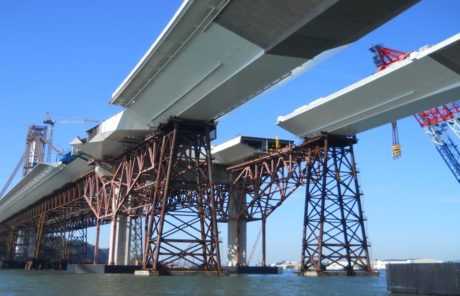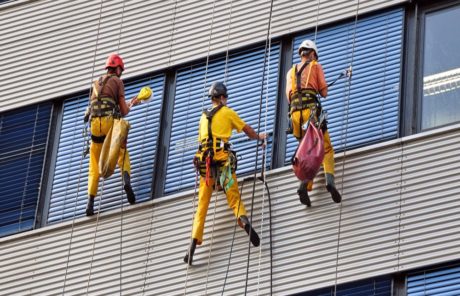INTRODUCTION
Climate change impacts related to human activity have rapidly become one of the key global issues facing modern societies. Buildings are estimated to generate over 70% of total Green House Gas Emissions, which we know contribute to serious issues linked to sustainability and our future environment.
These and other factors have seen the sustainable construction movement gain considerable strength and momentum over recent years. Significant pressures being placed on natural resources and there are global economic and financial constraints which are driving organisations towards greater efficiencies when designing, constructing and utilizing buildings. It is not surprising therefore, that government-led sustainable design and construction initiatives are now international in scope with almost 60 national Green Building Councils establishing ambitious performance goals for the built environment in their respective countries.
In this course, participants will gain an understanding of the importance of adopting forward-looking sustainable development goals and strategies, and of approaching each construction project with a clear set of sustainability targets/KPIs.
The course covers critical elements to consider at the design and planning stages of a project in order to incorporate sustainable construction principles. Additionally, the course introduces participants to LEED, GSAS and Estidama assessment methodologies. Environmental Management Systems (EMS) and Sustainable Procurement Policies are also reviewed for their effectiveness in the construction context.
Participants will be provided with the tools to develop their skills as a ‘Sustainability Champion’ at a project level. A Sustainability Action Plan will be developed by each participant and form the basis of an effective sustainable agenda to be implemented in their organizational projects upon course completion.
COURSE OBJECTIVES
By the end of the course, participants will be able to:·
- Define sustainable construction and address sustainability challenges at key stages of a project·
- Implement an effective Environmental Management System (EMS) and assess environmental risks, thereby improving environmental performance at project level·
- Comply with the region’s legal framework and Green Building Guidelines to protect, and enhance the physical environment where possible·
- Elevate environmental standards and performance across various structures in the built environment by following Green Building Certification schemes such as LEED and Estidama·
- Develop and implement a Sustainability Action Plan (SAP) for existing and future construction projects, and identify the tangible benefits for their organization
WHO SHOULD ATTEND?
Some ideal participants include but are not limited to:
- Construction Project Managers,
- Civil Engineers,
- Architects,
- Landscape architects,
- Contract Managers,
- Site Managers/Agents and Environmental Professionals.
- Anyone involved with designing, creating, operating, renovating and/or demolishing structures in the built environment will also highly benefit from this course.
TARGET COMPETENCIES
- Applying sustainable construction principles
- Sustainable building design procurement and delivery
- Leadership in Energy and Environmental Design (LEED)
- Implementing environmental management systems
COURSE OUTLINE
- The case for sustainability in construction
- Defining sustainability and its benefits
- Origins of sustainability
- Sustainable development
- Current hot topics
- Climate change
- IPCC reports
- Water resources
- Soil erosion
- Raw materials
- Energy demand
- Legal framework
- Environmental/social governance
- Green growth knowledge platform
- Key focus areas (compliance)
- Air environment
- Water environment
- Hazardous materials
- Waste management
- Noise control
- Environment reporting
- Administration
- Enforcement
- Permitting
- Site visits/inspections
- Environmental Management Systems (EMS) in the construction industry
- Effective EMS and site controls
- EMS requirements – ISO 14001: 2004/15
- Background and context
- Key ISO elements
- Environmental aspects
- Policy
- Objectives and targets
- Programs
- Audits
- External validation
- Green Building Guidelines
-
- Urban connectivity
- Site
- Energy
- Water
- Materials
- Indoor/outdoor environment
- Cultural & economic value
- 5 focus areas
- Indoor environmental quality
- Water use and efficiency
- Energy efficiency
- Cooling systems
- Envelope efficiency
- Leadership in Energy and Environmental Design (LEED)
- LEED applicability
- Examples of LEED projects
- Core LEED elements
- Site selection
- Water efficiency
- Energy and atmosphere
- Materials/resources
- Indoor environment
- Innovation
- Building Research Establishment Environmental Assessment Methodology (BREEAM)
- Civil engineering
- Environmental Quality Assessment and Award Scheme (CEEQUAL)
- Sustainable building design and procurement
- Challenges faced
- Physical environment
- Fundamental design features
- Procurement
- Sourcing materials
- Sustainable suppliers
- Life cycle analysis
- Product selection
- Green Building Council (GBC)
- Championing sustainability at project level
- Sustainability Action Plan (SAP)
- The implementation challenge
- What will you do differently tomorrow?
-
VENUE:
- DUBAI, UAE
- CAPE TOWN, SOUTH AFRICA
- MAURITIUS
- TANZANIA
- NAIROBI, KENYA
- KUALA LUMPUR, MALAYSIA
REGISTRATION:
To register for this course please apply online at: www.dotrid.com/apply-online or complete and forward our nomination form obtainable via email from: info@dotrid.org or call +27215519023, You can also send an inquiry via:
WhatsApp:+27 604 253 288.
IMO: +27 604 253 288.
Telegram: +27 604 253 288.
COURSE DATES:
13-17 MAY, 2019
15 -19 JULY, 2019
16 – 20 SEPT 2019
7-11 OCT, 2019
4-8 NOVEMBER 2019
2- 6 DEC 2019
YOUR TRAINING INVESTMENT
The cost of your course depends on factors including the number of delegates, specific requirements and the location of your training.
Dotrid International Training Institute will provide a detailed and competitive quote following your initial enquiry.
Course Curriculum
Course Reviews
No Reviews found for this course.
















